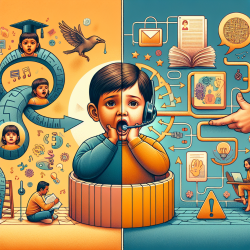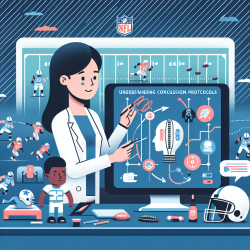As a speech-language pathologist, making data-driven decisions is crucial to improving outcomes for children. The European KIDSCREEN/DISABKIDS Project provides valuable insights into the health-related quality of life (HRQoL) of children and adolescents, both healthy and those with chronic conditions. This blog explores how practitioners can implement findings from this research to enhance their therapeutic approaches.
Understanding the KIDSCREEN/DISABKIDS Project
The KIDSCREEN project aims to develop standardized instruments for measuring HRQoL in children and adolescents across Europe. It includes generic and chronic-generic questionnaires to capture various dimensions of well-being. The DISABKIDS project complements this by focusing on disease-specific modules for children with chronic conditions.
Key Phases of the Projects
- Development Phase: Involved extensive literature review, expert consultations, and focus groups with children to identify relevant dimensions and items.
- Field Test Phase: Administered questionnaires to large, representative samples to test reliability and validity.
- Implementation Phase: Included the integration of questionnaires into national health surveys and clinical studies.
Implications for Practitioners
Understanding and implementing the outcomes of the KIDSCREEN/DISABKIDS Project can significantly enhance the effectiveness of therapy for children. Here are some actionable insights:
1. Comprehensive Assessment
Utilize the KIDSCREEN-52 or its shorter versions (KIDSCREEN-27, KIDSCREEN-10) to assess the overall well-being of children. These tools cover multiple dimensions, including physical, psychological, and social aspects.
2. Targeted Interventions
For children with chronic conditions, use the DISABKIDS modules to understand specific challenges and tailor interventions accordingly. These modules provide detailed insights into disease-specific issues, allowing for more targeted therapeutic strategies.
3. Early Identification of Risk Groups
The KIDSCREEN instruments can help identify children at risk of lower HRQoL due to socio-economic factors or chronic health conditions. Early identification enables timely interventions, potentially mitigating long-term adverse outcomes.
4. Cross-Cultural Sensitivity
The intercultural approach of the KIDSCREEN/DISABKIDS instruments ensures they are applicable across different cultural contexts. This is particularly useful for practitioners working in diverse settings, allowing for more accurate assessments and interventions.
Encouraging Further Research
While the KIDSCREEN/DISABKIDS Project provides a robust framework for assessing HRQoL in children, continuous research is essential. Practitioners are encouraged to contribute to ongoing studies and share their findings to further refine these instruments and enhance their applicability.
To read the original research paper, please follow this link: Measuring subjective health in children and adolescents: results of the European KIDSCREEN/DISABKIDS Project.










